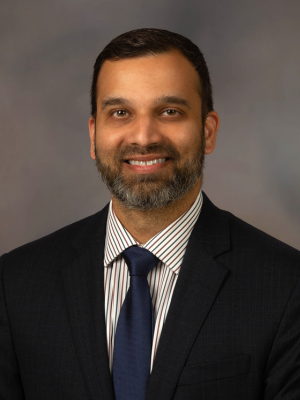IMPACT the Race 1.0 – Project Summary

In the summer of 2020, the School of Medicine was awarded a four-year grant from the Health Resources and Services Administration (HRSA). The primary aim of the award focused on rural medical education, with Dr. Loretta Jackson-Williams and Dr. David Norris serving as the project’s co-directors. Through this grant, the SOM developed the IMPACT the RACE (Improved Primary Care for the Rural Community Through Medical Education) program (ItR) to enhance the education of medical students about the health needs of rural communities and encourage students to choose residencies in primary care, with consideration of a career in rural underserved communities in Mississippi.
Through ItR, the SOM was able to accomplish many projects and activities to work towards this vision. Our work was divided into five objectives: (A) Strengthen student connections to rural communities; (B) Develop Rural Medicine focused topics within the educational program; (C) Develop outreach and academic support for students interested in health care careers; (D) Create a data collection and program monitoring system; and (E) Physician and faculty development. ItR’s accomplishments over the last four years will have a long-lasting impact on UMMC, the SOM, our students, and our state.
ItR expanded opportunities for students to engage with rural communities during their preclinical years (M1 and M2) and provided students with training experiences in more rural and underserved areas during their clinical years (M3 and M4). As first year students, medical students were given opportunities to participate in rural health fairs through partnerships the SOM developed with the Jackson free Clinic and the School of Nursing. Rising M2 students were provided the opportunity to participate in the six-week summer Primary Care Exploration Program (managed via a partnership with the Mississippi Rural Physician Scholarship Program), working one-on-one with a rural primary care physician. During the M2 year, students were required to participate in the School of Nursing managed Mercy Delta Express program, an intradisciplinary experience, where they traveled to a rural elementary school to conduct health screening for enrolled children. M3 and M4 students took advantage of expanded rural clerkship opportunities in Family Medicine, Internal Medicine, Pediatrics, Dermatology, and Surgery. ItR also drove and supported the formation of a student led Rural Medicine Interest Group, to serve as a forum and community for students considering a rural medicine career. Finally, scholarships were awarded to those students who showed a passion for rural medicine and pledged to practice primary care in a rural Mississippi community.
To better prepare medical students for a career in rural medicine, the SOM implemented new and enhanced existing rural medicine content in the educational program. Opportunities to train in underserved areas were expanded in the clinical portion of the curriculum, with an aim to expose students to the challenges and gratification of practicing rural medicine. Unused space at UMMC Grenada and Holmes County hospitals was converted to housing for students while they trained in these underserved communities. The SOM also interjected various telehealth related topics throughout the curriculum. In order to deliver this information more efficiently, audio and video technology was upgraded in the SOM building. Enhanced academic support was provided to students to ensure they had the resources to succeed in the classroom and matriculate through the program.
ItR developed outreach programs that provided information and exposure for high school and college students to various health careers. Support continued for the SOM’s early acceptance program for college students. For college graduates with an interest in medicine and all the other attributes and experiences needed to be a successful student and physician, but lacking a MCAT score comparable to the accepted class average MCAT score, ItR developed a MCAT prep program. Finally, for newly accepted SOM students with marginal academic metrics compared with the class, ItR enhanced a pre-matriculation program to ensure all students begin the M1 year at the same state of readiness for the rigors of the professional educational program.
The SOM collected data to monitor work outcomes of the ItR program. Among these are the numbers of students who participate in rural clerkships, student reflections after participation in a rural clinical training activity, stipends and scholarships disbursed, pre-clinical participation in rural engagement events, rural clinical training hours, and rural preceptors. Data was also captured on non-UMMC students who attended our outreach programs. These programs are a pipeline and serve as a recruitment tool for students who are motivated for a health care career.
Opportunities for professional growth and development are critical for the SOM in retention of faculty and engagement in the educational program. The SOM hosted an annual Professional Development Series, geared toward enhancing the skills of educators. ItR also developed an annual rural medicine education symposium that attracted rural health stakeholders from around the state.


